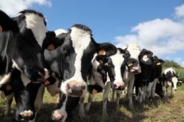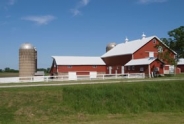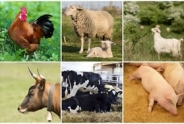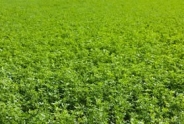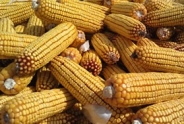Pasteurizers - What Should I be Considering?
Kim Morrill, Dairy Management
North Country Regional Ag Team
April 26, 2017
Pasteurizers provide an option for producers to feed whole milk to their calves, while reducing the risk of pathogen transfer from milk to calf. The ability to feed whole milk or waste milk, while reducing the risk of pathogen exposure sounds like a great idea, HOWEVER, there are some things to consider before going out and writing a check for that nice, new, shiny machine.
WHAT IS PASTEURIZATION?
During the pasteurization process milk is heated to a specified temperature and held there for a specified time. During his process bacterial organisms present in the milk are destroyed. The temperature and time are depended on the type of pasteurizer and the fluid being pasteurized (milk or colostrum).
Research has demonstrated that correct pasteurization of waste milk kills Mycobacterium paratuberculosis, the bacteria responsible for Johne's disease. Waste milk held at 149F (65C) for 10 min destroys Mycoplasma bovis, M. californicum, and M. canadense. High temperature, short term (HTST) results in destruction of M. paratuberculosis, Salmonella species, and Mycoplasma species in waste milk.
CONSIDERATIONS
The ability to feed whole milk or waste milk, while reducing the risk of pathogen exposure sounds like a great idea, HOWEVER, there are some things to consider before going out and writing a check for that nice, new, shiny machine.
Cost
- It's not just the price tag of the pasteurizer. You also need to be considering the cost to set up the pasteurizer (water and electricity), the cost of feeding whole milk, waste milk or milk replacer and maintenance costs.
- Pasteurizer work great when used properly. They also fail miserably when proper protocols are not followed for pasteurizing and cleaning. One person should maintain responsibility for monitoring the performance of the equipment and for training other employees how to utilize the equipment
- Monitoring performance - Is it working, is the temperature being maintained for the correct time frame and is the pasteurizer actually destroying bacteria? Milk samples should periodically be taken prior to pasteurization, immediately after pasteurization and at feeding to evaluate performance.
- Do you have a place for the pasteurizer where there is a power hook ups and hot water hook ups? Or, is this going to be another expense?
- Unfortunately, pasteurizers are like every other piece of equipment and sometimes break or have technical malfunctions. It's important to review different brands of pasteurizers based on your needs.
- Is the equipment reliable? Talk with producers about successes and challenges they've had with on-farm pasteurizers, not just the salesman.
- How quickly can service be provided? While you may really like pasteurizer X, if you can't get service or parts, it might not be worth the money.
- How will you get the milk into and out of the pasteurizer?
- Is the pasteurizer a stationary unit, or a mobile unit?
- How will you time pasteurization of milk based on timeframe between milk availability and calf feeding. If allowed to sit, pasteurized milk can re-grow bacteria.
- Are you going to feed saleable whole milk from the bulk tank, high SCC milk, or waste milk? If feeding waste milk, you need to recognize that antibiotics are NOT destroyed by pasteurization and calves are at risk of an antibiotic residue.
- What is your plan B if you run out of High SCC milk or waste milk?
Pasteurizers (pdf; 172KB)
Announcements
No announcements at this time.

